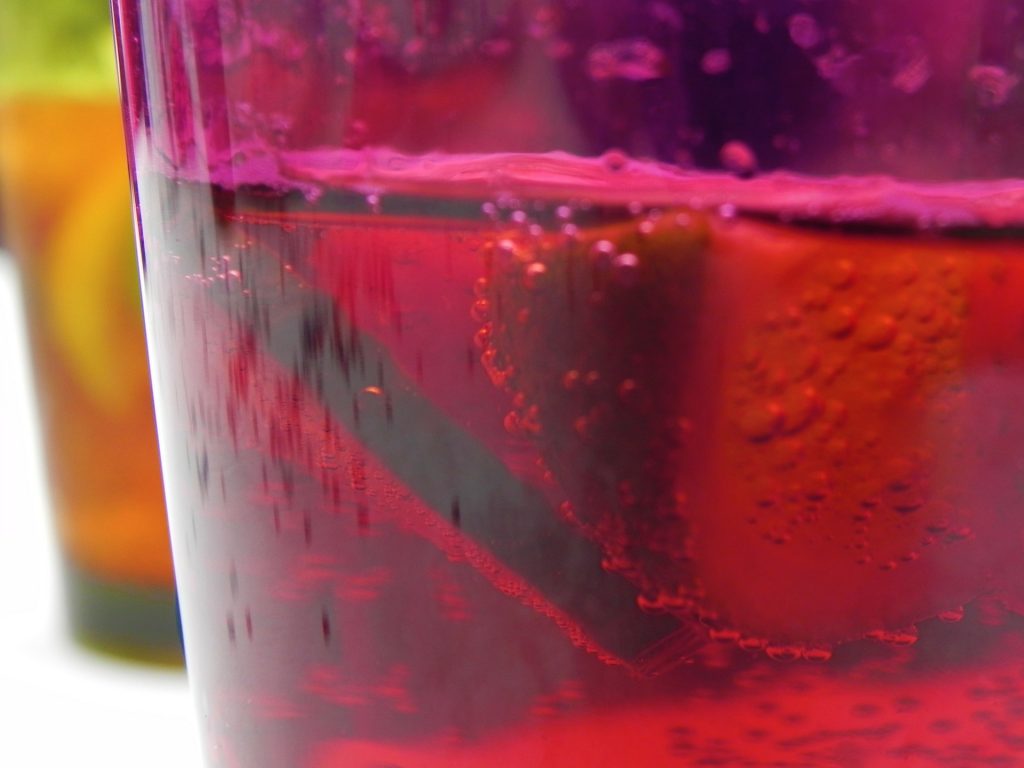
Excess sugar consumption has been a critical public health matter for some years.
Too much sugar in our diet can contribute to health problems such as obesity and diabetes. Large amounts of sugar are often found in soft drinks such as fizzy drinks and fruit juices, as well as many of the foods we commonly eat, from cereals to sauces. For instance, just one can of cola can contain nearly nine teaspoons of sugar when our recommended sugar intake shouldn’t exceed 5-6 teaspoons per day.
If high sugar levels are common in our diet, reducing our intake can be challenging, particularly if behaviours of consuming sugar have become strong habits over time. This is an area that IGHI’s Dr Gaby Judah, lecturer in behavioural sciences, has been investigating.
We caught up with Dr Judah to discuss her latest research looking at the effectiveness of swapping sugary drinks for water or diet drinks to reduce sugar consumption.
How big is the problem of excess sugar consumption?
“The overconsumption of sugar can lead to numerous health issues including type II diabetes, obesity and tooth decay. Treatments related to obesity cost the NHS approximately £5.1 billion each year according to Public Health England (PHE).
“Free sugars are those that are artificially added to food and drink and naturally found in products such as fruit juice and honey. The WHO recommends that our free sugar intake should be 10% of our total energy intake. Yet currently, in all age groups across England, PHE estimates it to be between 12-15%.
“Sugary drinks include soft drinks, fruit juices, energy drinks and iced teas. These account for around 25% of the total sugar intake in UK adults. Changing our habits in drinking SSBs could therefore be a way to reduce our overall consumption of sugar.”
How do we form habits when it comes to consuming sugary drinks?
“People can form helpful habits, such as flossing our teeth, or more unhealthy ones, like eating high sugar foods. We create habits by repeating the same behaviour in a particular situation, or context. Being in that very situation can automatically start prompting that behaviour. For example, we might pick up a sugary drink when we go to a cafe to buy our lunch during a working day. If people like the behaviour, then it feels rewarding, and this may reinforce the habit.”
What was the aim of your study?
“We know that swapping sugary drinks with water or low-calorie drinks can help to reduce sugar intake. However, there has only been limited research on the impact of how pleasurable something is on changing human behaviour and forming or breaking habits. The pleasure, or reward, associated with drinking sugary drinks can be expected to be important in driving our actions.
“In our study, we wanted to see if sugary drink consumption could be reduced and replaced by drinking water or a diet drink, and if the new habit forms and the sugary drink habit is weakened. We expected that as diet drinks will be similar in taste to sugary drinks, they would still be rewarding and an easier substitute to make than water.”
Tell us more about the trial.
“The trial took place online and lasted 8 weeks. We recruited 158 people over the age of 18 who wanted to reduce their sugar intake. Participants were randomly split into two groups. One group was advised to substitute their most commonly chosen sugary drink with water, and the other with diet drinks. Both groups had the same intervention designed to help them replace their sugary drink with a substitute drink.
“We created a really detailed intervention plan for participants. We asked people where and when they typically bought and drank sugary drinks – whether it’s on their supermarket shop, lunch break or after work. We suggested that they use this information to help make a detailed plan for alternatives. For example, when in the supermarket on a Saturday, they might plan to buy fizzy water instead of cans of cola. This strategy is called an ‘implementation intention’, where you make specific plans to change behaviour based on where and when this will take place. Implementation intentions can be used to support starting a new behaviour or substituting an unwanted habit for a new behaviour.”
What were the findings?
“Surprisingly, there were no differences between the diet drink and water groups in how much they reported liking their alternative drinks. Therefore, there was no difference in sugary drink or alternative drink consumption or habit between the two groups.
“However, we still found that at the end of the study, people who liked the alternative drink more than their sugary drink, were more likely to have reduced their consumption of the sugary drink, and to have formed habits for the alternative drink. The same was found for participants who came to like their alternative drink more than they did at the start of the trial.”
What are the implications of this?
“Diet drinks are not necessarily very good for us, so one could argue that from a public health perspective, it would be better to advise people to drink water instead. However, being intrinsically motivated (which includes feeling in control of what you do) is important when changing behaviour and forming habits. Efforts to change habits for drinking sugary drinks (as well as other behaviours) are likely to be more effective if we are not too prescriptive about the best alternative drink, and let people decide for themselves what they prefer. Our findings show that it is important to consider how much alternative options are liked, as this will have an impact on changing the behaviour and forming new, healthier habits.”
Read about the study, ‘A Habit-Based Randomised Controlled Trial to Reduce Sugar-Sweetened Beverage Consumption: the Impact of the Substituted Beverage on Behaviour and Habit Strength’ in full here.